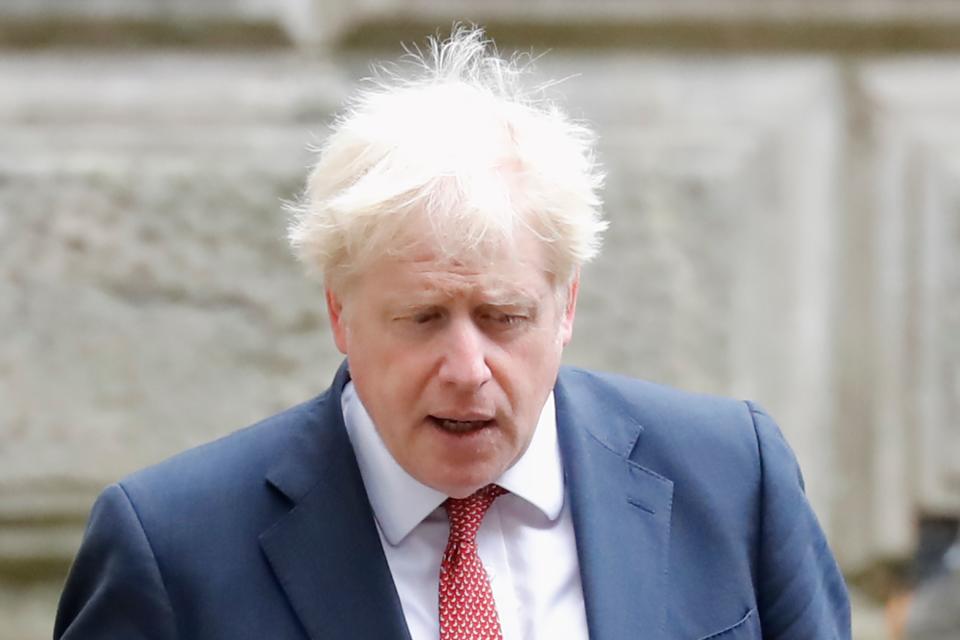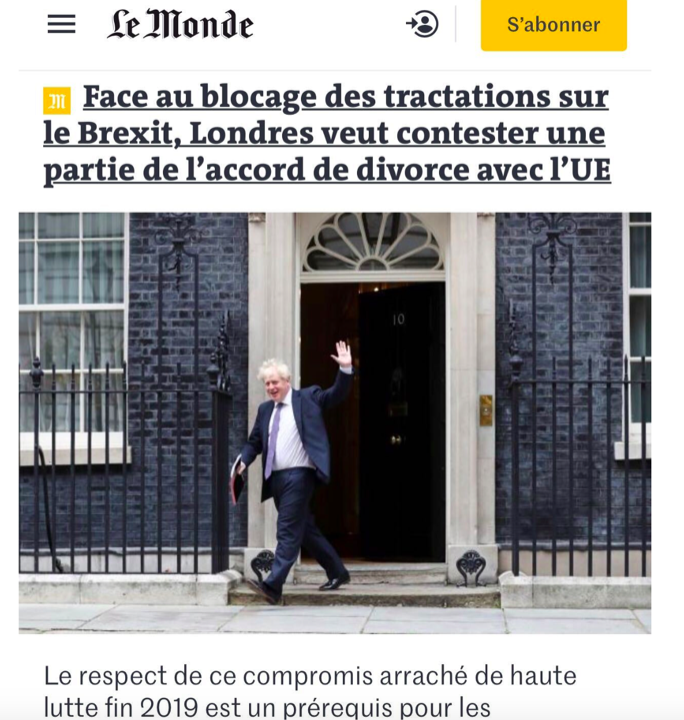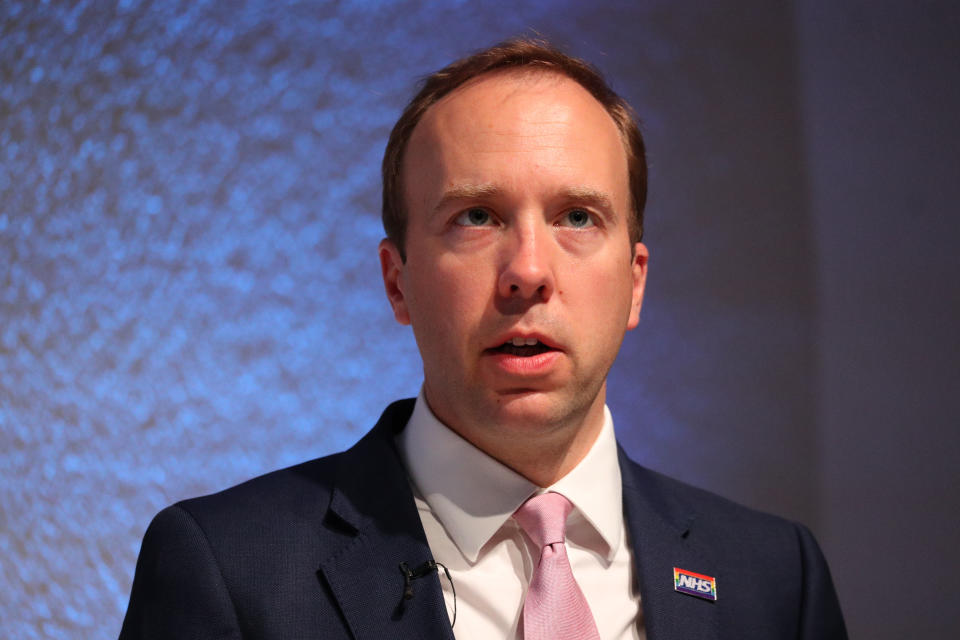'I'm flabbergasted': How other countries reacted to Boris Johnson's willingness to break international law

A French MEP has said she is “flabbergasted” that the UK is prepared to break international law over Boris Johnson’s Brexit deal with Brussels.
Northern Ireland secretary Brandon Lewis sparked fury on Tuesday when he admitted that changes in the Internal Market Bill would breach international law in a “very specific and limited way”.
He defended the measure by telling MPs it was necessary to ensure Northern Ireland could continue to enjoy unfettered access to markets in the rest of the UK.
But Nathalie Loiseau said the move was a “huge concern”.

She told BBC Radio 4’s Today programme: “I’m flabbergasted by what I heard yesterday. The ink of the Withdrawal Agreement is still wet.
“We’re negotiating the future relationship and we hear that the British government seems not to believe any more in a rules-based order.
“This is of course a huge concern.
“And it creates questions and scepticism about how much you can trust your partner in negotiation for the future.
“You don’t break international commitments in specific and limited manners. Either you break them or you abide by them.
“Either you are legal or you are illegal.”

International reaction
The EU has warned Britain its international reputation would be tarnished and there would be no trade deal if it tried to undercut the Brexit Withdrawal Agreement, signed in January, in relation to the protocol for Northern Ireland.
Reaction to the government’s plan has been negative from countries around the world.
German paper Der Spiegel said that the plan to break international law was a “masterpiece in the the art of denial of reality”.
It added: “As depressing, frustrating, or shocking as it may be, it isn't really surprising. Because when it comes to Northern Ireland, Boris Johnson is a repeat offender.”
French paper Le Monde said it was the British themselves “who invented the concept” of the value of an international treaty, adding: “This is the red line that Boris Johnson's government seems ready to cross, despite protests from its European partners, its political opponents and even some figures from the Conservative Party.”

One of those figures from the Conservative Party is chairman of the Commons defence committee Tobias Ellwood, who said the government should “not lose sight of who we are and what we stand for”
He told the Today programme: “This is about the rule of law and our resolve and commitment to uphold it.
“To unilaterally ignore any treaty in its obligations which we’ve signed and submitted to the United Nations would actually go against everything we believe in.”
Britain’s soft power & respected voice on the int’l stage comes from our duty & resolve to defend & uphold int’l laws.
This cannot change as we secure Brexit -otherwise our stance in holding China/Russia/ Iran etc to account & upgrading the rules based order is severely weakened. pic.twitter.com/jprMEur3i8— Tobias Ellwood MP (@Tobias_Ellwood) September 8, 2020
He added: “How can we look at countries such as China in the eye and complain about them breaching international obligations over Hong Kong, or indeed Russia over ballistic missiles, or indeed Iran over the nuclear deal if we go down this road?”
Across the Atlantic, the New York Times also criticised the plan, describing Johnson’s move as “aggressive”.
1/ The Internal Market Bill that the U.K. government will publish today is a full frontal assault on devolution. And to the usual “but the SNP would say that” voices, read the Welsh Government view below, rightly referring to the Bill ‘stealing’ powers from the devolved govts... https://t.co/iYoxyRtinS
— Nicola Sturgeon (@NicolaSturgeon) September 9, 2020
Should the UK pull back from the Withdrawal Agreement, the paper said, it would be “at the cost of trigging another confrontation with the EU” and would “raise questions about the government’s commitments to the rule of law”.
Scottish first minister Nicola Sturgeon said the new legislation would be a “full-frontal assault on devolution”.
She added on Twitter: “This UK government is the most reckless… and unprincipled in my lifetime.”

Breaking the law ‘necessary’
Health secretary Matt Hancock said this morning that he was “comfortable” with the UK breaking the law on the Withdrawal Agreement as it was necessary to preserve peace in Northern Ireland.
He told Times Radio: “The primary international obligation around this issue is to protect the peace process in Northern Ireland and I very much hope we conclude a deal before the end of the transition period.
“I think that we will and it is in everybody’s interest to do so as we did last time, but I also understand why ministers have chosen to prioritise at the absolute top of that the importance of protecting the peace process in Northern Ireland.”

The government’s admission on Tuesday came as the head of the government legal department Sir Jonathan Jones became the latest senior civil servant to quit his post.
No reason was given for his resignation but the Financial Times reported that he was “very unhappy” with the proposed changes to the Withdrawal Agreement.
The UK left the EU on 31 January but talks on new trade terms have made little headway as the October deadline approaches before the end of the status-quo transition arrangement in late December.

 Yahoo Sports
Yahoo Sports 
